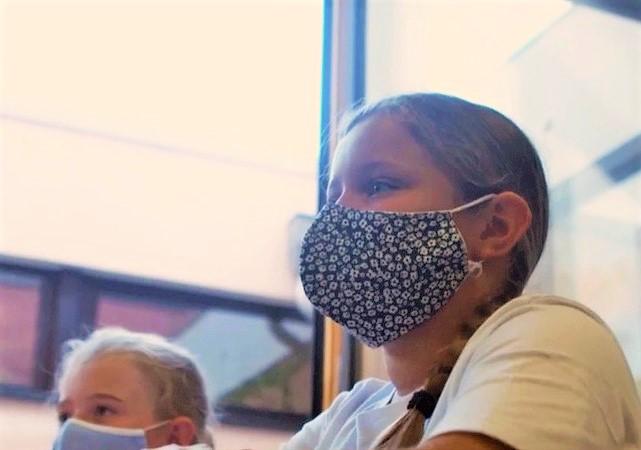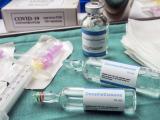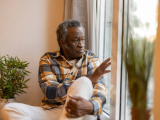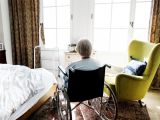A safe return to school this fall can be managed only at the local level and only if local disease transmission is low, said Mike Ryan, MD, who directs the World Health Organization's (WHO's) health emergencies program, in a live Q&A today with Maria Van Kerkhove, PhD, the WHO COVID-19 technical lead.
"Going back to school depends on the local epidemiology, the local transmission, the local profile of schools, the size of schools, the density of schools, the resources that schools have," he said, adding that this means that overcrowded schools with the fewest resources and most socioeconomically disadvantaged students will be at a disproportionately high risk for outbreaks.
Ryan said that although many schools have wisely decided to implement innovative precautions such as staggering start times, reducing student movement around the school, and using distance learning, the decision to reopen schools is fraught with complexities and is an obvious source of worry for parents, teachers, and students.
In response to a question about universal diagnostic testing of students before school begins, he said that testing is no guarantee of a safe return to school because of the high rate of false-negative results. "If they're positive today, yes, you can remove that person, but if they're negative it doesn't mean anything, because that person can become positive within a few days, especially if they've been exposed recently."
Global COVID-19 cases are at 22,233,913, including 783,243 deaths, according to the Johns Hopkins University dashboard.
Vaccine nationalism warnings
Today, Pope Francis urged wealthy countries not to hoard any potential coronavirus vaccine and to give bailouts to businesses committed to protecting the environment, promoting the common good, and helping the needy and disenfranchised. The announcement follows yesterday's warning from the WHO that vaccine nationalism would worsen the pandemic.
"The pandemic is a crisis, and one never exits from a crisis returning to the way it was before,” the pope said. "Either we leave better, or we leave worse. We have to leave better in order to tackle social injustices and environmental degradation."
One outbreak slowdown, many more resurgences
Victoria state, Australia's COVID-19 hot spot, has reported a slowdown in the number of new infections after an uptick in cases led authorities to impose a strict lockdown in early August. Since yesterday, 216 new cases and 12 deaths were reported, down from more than 700 daily cases before the lockdown. Also today, Australia reported that it has made a deal with AstraZeneca to supply a possible vaccine to all citizens for free.
Its neighbor, New Zealand, which saw a resurgence in coronavirus cases in recent days after 100 days of no disease activity, reported 6 new infections today—1 of them imported by a woman from Qatar and the other 5 traced to the recent community outbreak, according to the New Zealand Ministry of Health. The country has recorded about 90 active cases.
Meanwhile, other regions and countries, many of which were able to contain earlier outbreaks, are struggling with new spikes in cases and deaths:
- Africa
- Ethiopia saw new cases rise 80% in 1 day, Al Jazeera reported, pushing infections in that country to 32,700, with 572 deaths.
- Asia
- Nepal reported that more than 1,000 people tested positive for COVID-19 and 7 died from their infections in the past day—the country's worst single-day surge, according to Reuters. Nepal now has 28,257 cases and 114 deaths. Kathmandu and neighboring areas reported 205 new cases, an increase in 10% from the day before; as a result, the capital city has temporarily forbidden transportation and public and religious gatherings just ahead of the Hindu festival season.
- South Korea today reported 297 cases, its sharpest daily rise since early March and the sixth consecutive day of triple-digit increases, Reuters According to data from the Korea Centers for Disease Control and Prevention, the country's case tally stands at 16,058, with 306 deaths. At least 166 of the new cases are tied to the Sarang Jeil Church, for 623 cases total from that outbreak, while three other outbreaks have been linked to churches in Seoul and one to a church in Yongin. At least 50 cases have been traced to a coffee business in Paju. Authorities in Seoul and neighboring regions have ordered nightclubs, karaoke bars, buffets, and computer cafes to shut down amid the crisis.
- Nepal reported that more than 1,000 people tested positive for COVID-19 and 7 died from their infections in the past day—the country's worst single-day surge, according to Reuters. Nepal now has 28,257 cases and 114 deaths. Kathmandu and neighboring areas reported 205 new cases, an increase in 10% from the day before; as a result, the capital city has temporarily forbidden transportation and public and religious gatherings just ahead of the Hindu festival season.
- Europe
- Croatia has set a new COVID-19 record, with 219 cases in the past day, pushing the total of active cases to 1,520, according to Al Jazeera, and prompting neighboring Slovenia to warn its citizens in Croatia to return by week's end or face a 2-week quarantine.
- Ireland reported 190 new cases yesterday, the second-highest daily increase since early May, Reuters The case growth rate in the previous 2 weeks was the fourth-highest in Europe. While restaurants and pubs that serve food can remain open, visitors to homes are limited to six, outdoor gatherings are limited to 15, and fans cannot attend sporting events.
- Italy registered 642 new coronavirus infections today, adding to fears of an epidemic resurgence amid rapid increases in case numbers similar to those seen when the country ended lockdowns in early May, according to The Guardian. Officials have ordered discos to shut down and mandated wearing masks outdoors in some areas.
- Spain today recorded 3,715 new COVID-19 cases, the most since the country lifted its lockdown in late June, according to Al Jazeera.
- Croatia has set a new COVID-19 record, with 219 cases in the past day, pushing the total of active cases to 1,520, according to Al Jazeera, and prompting neighboring Slovenia to warn its citizens in Croatia to return by week's end or face a 2-week quarantine.
- Middle East
- Today, Iran set the record for highest death toll of any Middle East country—20,000. The country, which also has the region's biggest outbreak, did not let rising case numbers stop it from holding college entrance exams for more than 1 million students. Iran also plans to hold large Shia ceremonies later this month.
- Lebanon officials have ordered a 2-week business shutdown and overnight curfews to contain a surge of COVID-19 cases, which will give the country time to manage the fallout from the Aug 4 explosion at a Beirut warehouse, which killed 178 people, injured more than 6,000, overwhelmed half of the city's medical centers, and displaced nearly 250,000 people. The number of new daily infections is now more than 400. Since February, Lebanon has recorded 9,337 cases and 105 deaths.
- Today, Iran set the record for highest death toll of any Middle East country—20,000. The country, which also has the region's biggest outbreak, did not let rising case numbers stop it from holding college entrance exams for more than 1 million students. Iran also plans to hold large Shia ceremonies later this month.





















